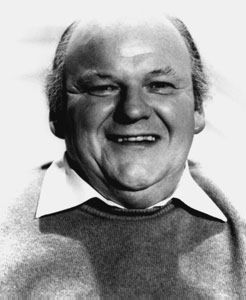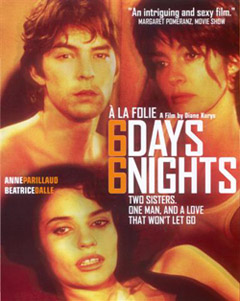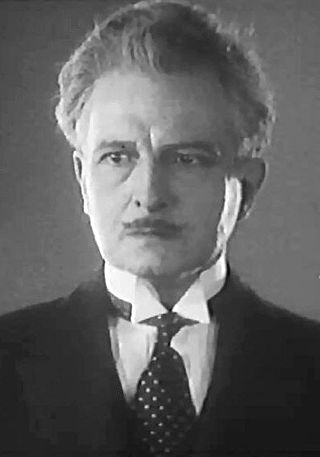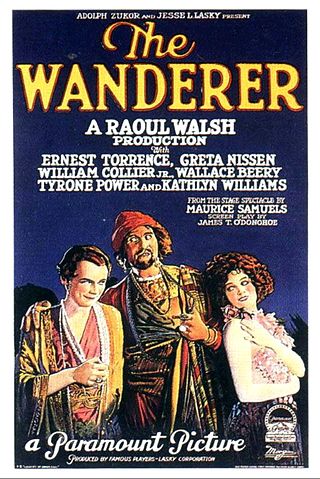
Roy Mitchell Kinnear was an English character actor and comedian. He was known for his acting roles in movies such as Henry Salt in the 1971 film Willy Wonka & the Chocolate Factory, Algernon in The Beatles' Help! (1965), Clapper in How I Won the War (1967), and Planchet in The Three Musketeers (1973). He reprised the role of Planchet in the 1974 and 1989 sequels, and died following an accident during filming of the latter.

John Henry Hammond Jr. was an American record producer, civil rights activist, and music critic active from the 1930s to the early 1980s. In his service as a talent scout, Hammond became one of the most influential figures in 20th-century popular music. He is the father of blues musician John P. Hammond.

Roy Ayers is an American vibraphonist, record producer and composer. Ayers began his career as a post-bop jazz artist, releasing several albums with Atlantic Records, before his tenure at Polydor Records beginning in the 1970s, during which he helped pioneer jazz-funk. He is a key figure in the acid jazz movement, and has been described as "The Godfather of Neo Soul". He is best known for his compositions "Everybody Loves the Sunshine", "Lifeline", and "No Stranger To Love" and other that charted in the 1970s. At one time, he was said to have more sampled hits by rappers than any other artist.
Ian Robertson Underwood is a woodwind and keyboards player, known as a member of the original version of Frank Zappa's band the Mothers of Invention. Following the original band's split in late 1969, Underwood continued to work with Zappa extensively during the 1970s.

Tom Tyler was an American actor known for his leading roles in low-budget Western films in the silent and sound eras, and for his portrayal of superhero Captain Marvel in the 1941 serial film The Adventures of Captain Marvel. Tyler also played Kharis in 1940's The Mummy's Hand, a popular Universal Studios monster film.

He Walked by Night is a 1948 American police procedural film noir directed by Alfred L. Werker and an uncredited Anthony Mann. The film, shot in a semidocumentary tone, is loosely based on the real-life actions of Erwin "Machine-Gun" Walker, a former Glendale, California police department employee and World War II veteran who unleashed a crime spree of burglaries, robberies and shootouts in the Los Angeles area between 1945 and 1946.

Roy William Neill was an Irish-born American film director best known for producing and directing almost all of the Sherlock Holmes films starring Basil Rathbone and Nigel Bruce, made between 1943 and 1946 and released by Universal Pictures.

Frankenstein Meets the Wolf Man is a 1943 American horror film directed by Roy William Neill and starring Lon Chaney Jr. as Larry Talbot and Bela Lugosi as Frankenstein's monster. The script, written by Curt Siodmak, follows The Ghost of Frankenstein and The Wolf Man, though with a number of retcons. Most significantly, Talbot only transforms into werewolf form during a full moon, which became a standard part of werewolf lore. The film involves Larry Talbot, who is resurrected when his tomb is disturbed. His search for a way to end his seeming immortality leads to his befriending Frankenstein's monster.

Dressed to Kill is a 1946 American mystery film directed by Roy William Neill. Released by Universal Pictures, it is the last of fourteen films starring Basil Rathbone as Sherlock Holmes and Nigel Bruce as Doctor Watson. It is also known by the alternative titles Prelude to Murder and Sherlock Holmes and the Secret Code in the United Kingdom.

Enemies of Women is a 1923 American silent romantic drama film directed by Alan Crosland and starring Lionel Barrymore, Alma Rubens, Gladys Hulette, Pedro de Cordoba, and Paul Panzer. The film was produced by William Randolph Hearst through his Cosmopolitan Productions. Pre-fame actresses Clara Bow and Margaret Dumont have uncredited bit roles.

William Collier Jr. was an American stage performer, producer, and a film actor who in the silent and sound eras was cast in no fewer than 89 motion pictures.

Island of Lost Women is a 1959 American independently made black-and-white castaways melodrama film, produced by George C. Bertholon, Albert J. Cohen, and Alan Ladd, that was directed by Frank Tuttle and released by Warner Bros. Pictures. The film stars Jeff Richards, Venetia Stevenson, John Smith, Alan Napier, Diane Jergens, and June Blair. The film's storyline borrows details from Shakespeare's The Tempest and more contemporaneously the 1956 science fiction film Forbidden Planet.
The history of the sitar in jazz, that is the fusion of the sounds of Indian classical music with Western jazz, dates back from the late-1950s or early-1960s when musicians trained in Indian classical music such as Ravi Shankar started collaborating with jazz musicians such as Tony Scott and Bud Shank. Later jazz recordings containing sitar music include albums by Miles Davis, Alice Coltrane, Yusef Lateef, Joe Harriott ,and Ornette Coleman.

À la folie is a 1994 French drama film by Diane Kurys with music by Michael Nyman. It entered the competition at the 51st Venice International Film Festival.

John M. St. Polis was an American actor.

The Lucky Lady is a 1926 American silent romance film produced by Famous Players–Lasky, distributed by Paramount Pictures, directed by Raoul Walsh, and starring Greta Nissen, Lionel Barrymore, William Collier, Jr., and Marc McDermott.

The City is a 1926 American silent romantic drama film produced and released by the Fox Film Corporation. It was directed by Roy William Neill and is based on Clyde Fitch's 1909 Broadway play. A previous film on Fitch's play appeared in 1916. This version updated the story to contemporary 1926.

The Wanderer is a 1925 American silent drama film directed by Raoul Walsh and starring Greta Nissen, Wallace Beery, and Tyrone Power Sr. It was distributed by Paramount Pictures.

The Folly of Vanity is a 1924 American silent drama film codirected by Maurice Elvey and Henry Otto and starring Billie Dove and Betty Blythe. It was produced and distributed by the Fox Film Corporation. The film is divided into two sections, the modern part which was directed by Elvey and the underwater fantasy section directed by Otto.

Greater Than a Crown is a 1925 American silent romantic comedy film directed by Roy William Neill and starring Edmund Lowe, Dolores Costello, and Margaret Livingston. It was based on a 1918 novel The Lady from Long Acre by the British writer Victor Bridges. The novel had previously been adapted as the 1921 film The Lady from Longacre.


















